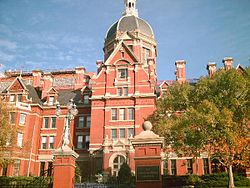Explaining Medical Residencies
After my previous blog on financing medical residencies, it was brought to my attention that medical residencies, their functional details (why and how) may not be well understood. Let’s start at the beginning for those who want to be a doctor.
First you attend college where you work to achieve a grade point average sufficient to be admitted to medical school. Having graduated from medical school, then what? You can’t just set up in practice; you must be licensed by a state medical board. To be eligible for licensure, after medical school you must complete training in a specialty. This training period is called a residency and is focused in a medical specialty such as surgery, internal medicine, etc. This intensive educational experience is focused on the clinical practice of the specialty in contrast to medical school which provides a broad introduction to Medicine. Because a residency follows medical school it is called graduate medical education. The trainees are called residents because in earlier years they resided in the hospital.
The argument is sometimes advanced that people are responsible for both their college and medical school tuition so graduate medical education should be considered similar and residents should not receive a salary. This is not reasonable and frequently not even possible. The typical medical school graduate is 25 or more years old and many have substantial debt accrued from school loans necessary for their college and/or medical school expenses. Residency training lasts 3 or more years. General surgery takes 5 years and thoracic surgery, my specialty, requires 7 or more years. Most of them have families to support. They could not survive if they did not receive a reasonable stipend. And don’t even think about asking them to take on a second job. The experiences vary but most residents are hard at work with patients and learning their discipline for 60 to 80 hours a week. And there is the opportunity cost of delaying joining the work force with their peers who jumped in after college graduation.
So residents learn while they work, but residency is definitely a job.



